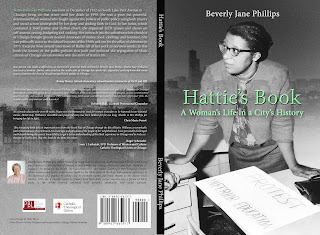The Essex Serpent by Sarah Perry
I got off to a rather good start of reading for A Century of Books with the new year, then hit a snag when I had three days of complete
fatigue, just sleeping with nothing else gonna happen! When I woke up from
that, I realized that I not only did I need to start blogging about books but
that I also need to keep reading. Also realized that I was very behind in my
regular work of editing other folk’s writing so I didn’t feel I could start my
own blog resurrection until I got a bit of that behind me. But I can dictate
voice to text on my phone laying my bed so that is what I’m doing now in order
to start my blog posts about reading. I think I’ll try go in order as I read
them to get started (that didn’t last long).
You meet Cora Seabourne when she is married to a brutal man,
a member of society who abuses her horribly but has a stellar reputation
outside of the home.
However, she is soon liberated when he dies and she is able
finally to pursue her own interests in natural history and feminism. She leaves
London with her son and his nanny, a confidante, and goes off to the Essex
coast to find release in the wild lush, but open, space in the country. She loves
nothing more than digging around in nature, searching for fossils, rejecting
religion and superstition.
A rumor is being noised about that there a sea serpent living
in the estuary, come to life after 300 years. She immediately rejects this and
becomes sure in her mind it is an entirely new species which she is going to
discover. A panic has arisen among the local populace as it is said that the
sea serpent is claiming human lives and devouring them. The local vicar, Will
Ransome, is doing his best to resist the panic and dispel the rumors, preaching
that people have just lost true belief in the (Anglican) God they had
espoused.
Cora is invited to meet Will, through common friends, and
receives an invitation from Will’s wife Stella to visit. Will and Cora meet and
have an immediate attraction though they share almost no beliefs except their love for
nature. “He felt his faith deeply, and above all out of doors, where the
vaulted sky was his cathedral nave and the oaks its transept pillars: when
faith failed, as it sometimes did, he saw the heavens declare the glory of God
and heard the stones cry out.” For her part, Cora likes nothing more than to “grub
in the mud,” finding
Essex has her bride’s gown on:
there’s cow parsley frothing by the road and daisies on the common, and the
hawthorn’s dressed in white; wheat and barley fatten in the fields, and
bindweed decks the hedges. Cora has walked four miles and is not yet tired. At
the fifth mile she passes a farmer stripped to the waist and unbuttons her
shirt: why should her skin be disgraceful, when his is not? But there’s someone
on the path, and she puts the buttons back through their slots: no sense courting
disaster. She comes to a place where roses are grown for bowls and vases in
dining rooms elsewhere; an acre or two of blooms laid out in colored stripes,
as if bolts of silk had been dyed and left to dry. It scents the air; she licks
her lips, and there’s Turkish Delight on her tongue.
Cora’s rejection of religion is a real source of contention,
but Will writes to her, “I won’t accept that my faith is the faith of
superstition. I suspect you despise me for it just a bit—and I know your doctor
does!—and I almost wish I could deny it to please you. But it’s a faith of
reason, not darkness: the Enlightenment did away with all that. If a reasoned
creator set the stars in their place then we must be capable of understanding
them—we must also be creatures of reason, of order!”
This book has everything you could want in a story (actually
many stories because in addition to the main stories of Cora and Will, there
are the stories of Cora’s son Francis, the nanny Martha and her friend Spencer
who is also Luke, the doctor’s friend, the story of Stella who is dying of
consumption and her daughter Joanna, all interesting in themselves). Part
Gothic, part mystery, part theological reflection, part feminist tale, large
part of romance--in short it is as close to perfect as it gets. I don’t want to
give away any of the endings; but though I loved the book, I’m not sure that I
liked THE ending. Well, in my life I am quite a realist, but my reading self is
usually a romantic. But, I definitely loved the book and recommend it highly!



I loved this one too and can't wait to see what Sarah Perry writes next!
ReplyDelete